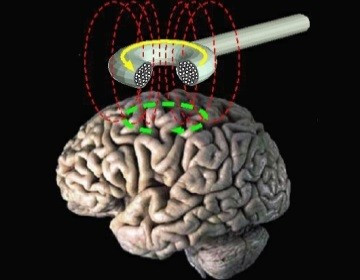Psychotic Symptoms of Schizophrenia Caused by Faulty Brain Switch

The psychotic symptoms suffered by people with schizophrenia are a result of a faulty "switch" in the brain that goes between a person's inner thoughts and the external world.
Hallucinations and delusions typical of the psychiatric disorder are caused by a disconnection between two areas of the brain, researchers from the University of Nottingham have found.
Published in the journal Neuron, they say their find could lead to better treatments for these symptoms of schizophrenia.
Study leaders Peter Liddle and Lena Palaniyappan looked at the insula region, which is buried deep in the brain and is responsible for switching between a person's inner and outer world.
Palaniyappan explained: "In our daily life, we constantly switch between our inner, private world and the outer, objective world. This switching action is enabled by the connections between the insula and frontal cortex."
A number of regions are involved when we switch from our internal and external world - a person may be lost in thought but be interrupted by a loud noise, for example. At this point, the brain switches back to using the frontal cortex of the brain, which is responsible for processing external events.
Brain stimulation
"This switch process appears to be disrupted in patients with schizophrenia," Palaniyappan said. "This could explain why internal thoughts sometime appear as external objective reality, experienced as voices or hallucinations in this condition.
"This could also explain the difficulties in internalising external material pleasures (eg, enjoying a tune or a social event) that result in emotional blunting in patients with psychosis."
Researchers looked at MRI scans of healthy volunteers and compared them with those of schizophrenic patients.
Findings showed that while healthy patients can switch between regions, schizophrenic patients were less able to. The system that allows the brain to shift from one to the other was "seriously compromised", they said.
Treatment for schizophrenia involves antipsychotic drugs and psychological treatment. However, many people stop taking their medication because of the side effects.
The research team believe that they may be able to use transcranial magnetic stimulation (TMS), which delivers a magnetic pulse to stimulate the brain, to treat schizophrenia.
While the insula is too deep in the brain to be treated, they believe that TMS could be used to stimulate the frontal cortex and reset the faulty switch and reduce to stop hallucinations and delusions. The authors noted that their research was at its early stages but said that in the long term it could result in targeted treatments.
The cause of schizophrenia is unknown but it normally presents itself in patients in their late teens or early 20s. One in every 100 people will experience schizophrenia during their lifetime.
© Copyright IBTimes 2025. All rights reserved.






















